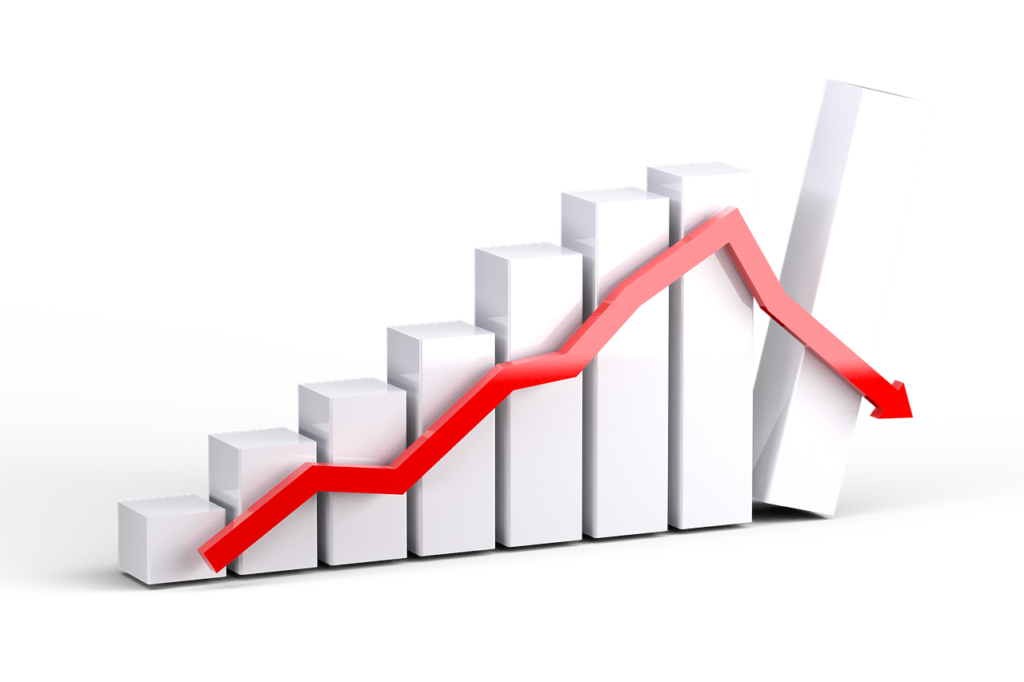What Is the Stock Market?
Stock Market is a marketplace where stocks, bonds, options, and other financial instruments are traded. The term stock market refers to several exchanges in which shares of publicly held companies are bought and sold. Such financial activities are conducted through formal exchanges and via over the counter (OTC) marketplaces that operate under a defined set of regulations.
- Stock markets are components of a free-market economy because they enable democratized access to investor trading and exchange of capital.
- Stock markets create efficient price discovery and efficient dealing.
- Stock markets are venues where buyers and sellers meet to exchange equity shares of public corporations.
- The U.S. stock market is regulated by the Securities and Exchange Commission (SEC) and local regulatory bodies.

Both “stock market” and “stock exchange” are often used interchangeably. Traders in the stock market buy or sell shares on one or more of the stock exchanges that are part of the overall stock market.
How it Works
Stock markets provide a secure and regulated environment where market participants can transact in shares and other eligible financial instruments with confidence, with zero to low operational risk. Stock market allows companies to issue and sell their shares to the public for the first time through the process of an initial public offering (IPO).
A company divides itself into several shares and sells some of those shares to the public at a price per share. To facilitate this process, a company needs a marketplace where these shares can be sold and this is achieved by the stock market. A listed company may also offer new, additional shares through other offerings at a later stage, such as through rights issue or follow on offering. They may even buy back or dilist their shares.
Investors will own company shares in the expectation that share value will rise or that they will receive dividend payments or both. The stock exchange acts as a facilitator for this capital-raising process and receives a fee for its services from the company and its financial partners.6Using the stock exchanges, investors can also buy and sell securities they already own in what is called the secondary market.

Functions of a Stock Market
The stock market guarantees all interested market participants have access to data for all buy and sell orders, thereby helping in the fair and transparent pricing of securities. The market also ensures efficient matching of appropriate buy and sell orders.
The stock market ensures price transprency, liquidity,price discovery, and fair dealings in trading activities. Stock markets need to support price discovery where the price of any stock is determined collectively by all of its buyers and sellers. Those qualified and willing to trade should get instant access to place orders and the market ensures that the orders are executed at a fair price.

Stock Markets Regulation
Most nations have a stock market and each is regulated by a local financial regulator/monetary authority, or institute. The SEC is the regulatory body charged with overseeing the U.S. stock market.
Companies listed on the stock market exchanges are regulated, and their dealings are monitored by the SEC. In addition, the exchanges set certain requirements such as mandating timely filing of quarterly financial reports and instant reporting of relevant corporate developments, to ensure that all market participants are equally informed.
The SEC is a federal agency that works independently of the government and without political pressure. The mission of the SEC is stated as “protecting investors, maintaining fair, orderly, and efficient markets, and facilitating capital formation. Failure to adhere to the regulations can lead to suspension of trading and other disciplinary measures.

FAQs
Significance of the Stock Market – The stock market is a component of a free-market economy. It allows companies to raise money by offering stock shares and corporate bonds and allows investors to participate in the financial achievements of the companies, make profits through capital gain, and earn income through dividends.
How Investor Trade on the Stock Market – Brokers act as intermediaries between the stock exchanges and the investors by buying and selling stocks portfolio manager and are professionals who invest portfolios, or collections of securities, for clients. Investment Bankers represent companies in various capacities, such as private companies that want to go public via an IPO or companies that are involved in pending mergers and acquisitions.
Alternate Trading System – Alternatives of stocks are venues for matching large buy and sell transactions and are not regulated like many cryptocurrency exchanges are private exchanges or forums for securities and currency trading and operate within private groups.
The above video by TED-ED completely explains the history of stock marketing’s and How it works .